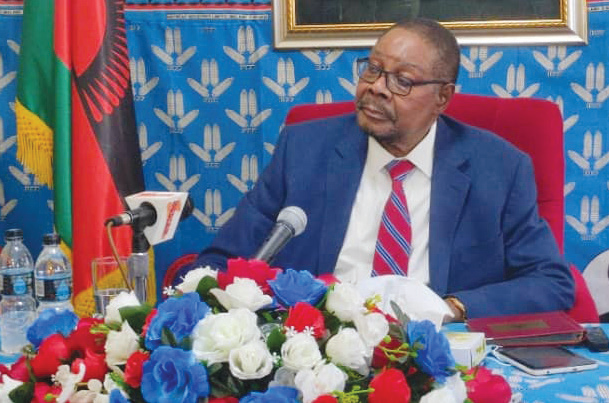Now that we have ‘replaced’ the rubble…
If ever Malawians needed a reason to believe that the current cohort of political leaders have, and will, always fail them, then the events of the past fortnight have provided plenty of cause to reinforce that opinion.
Former president Arthur Peter Mutharika [APM] kick-started the theatrics with his scathing indictment of his successor Lazarus Chakwera’s first year in office, claiming that the President has not achieved what he promised Malawians.
Unsurprisingly, the wonderful chaps at State House were not willing to let that slide and faulted APM for plunging the country into trillions of kwacha worth of debt, which they alleged the Chakwera administration has dealt with.
Within the week, Chakwera was back in the limelight, getting a lot of negative publicity on both social and mainstream media after he appointed his daughter and mother-in-law to Vice-President Saulos Chilima as diplomats.
The layman could not help but muse at the apparent role reversal between APM and Chakwera. In the lead up to the May 21 2019 Tripartite Elections, Chakwera was the eloquent abstractionist, criticising ‘the nepotist APM’ for failing Malawians.
This time, it is APM who is playing the role of the critic, as usual, pointing out a lot of mistakes in Chakwera’s perceived short-comings as the incumbent President, but without providing any tangible or viable solutions.
It is concerning how Malawian politicians don’t seem to grasp the concept of constructive criticism.
APM and Chakwera can’t quite grasp the simple concept that Malawians need a lot less of their usual exposition and a lot more of the solution they have consistently failed to provide during their terms of office.
And, of course, Chakwera is apparently proving to be a more nepotistic President than the man he replaced. In all his six years at the helm, APM never appointed his children to diplomatic roles. Chakwera has managed the unenviable feat in just over one year.
Honestly, Malawians should have seen this coming. The warning bells sounded the moment Chakwera sought to re-educate Malawians on the correct definition of ‘merit’, when he appointed his close aides and their families in his first Cabinet.
The layman has cautioned repeatedly that if Malawians keep changing leaders, without implementing reforms, it would just create an opportunity for the families and friends of the Tonse Alliance administration to benefit from the dysfunctional political system.
By now, it is becoming abundantly clear that the Tonse Alliance never meant to implement the reforms or “clear the rubble” as the good President eloquently put it after he became President. It seems the goal was to just r”eplace the rubble”.
As if that was not bad enough, even the other stakeholders, the former vice-president and the human rights defenders who united with Chakwera to “clear the rubble”, are not coming to the public’s rescue to condemn this blatant show of nepotism.
How can they when they, or those close to them, have also benefited from the same malfeasance? As one of the layman’s colleagues brazenly put it: “It is considered bad manners to talk when your mouth is full”.
Jokes aside, the layman feels that there are more pressing matters to attend to. Yes, Malawians have every right to feel aggrieved that all their fighting against executive arrogance and nepotism in the past year is being undone before their eyes.
But it would be better to focus on the Public Service Reforms that are gathering dust on a shelf somewhere, when the President is busy rewarding the people who aided his ascent to the presidency with public and diplomatic missions on taxpayers’ dime.
Putting two-and-two together, it is clear to see why the presidency is reluctant to disclose the contents of that report, let alone do anything to fix this broken political system.
Once it is out, perhaps the laymen community should lobby government to include academic qualifications and professional experience as a prerequisite for government positions, either to the public service, boards of parastatals or diplomatic missions.
Maybe that will put Malawi on the path to true political transformation.





